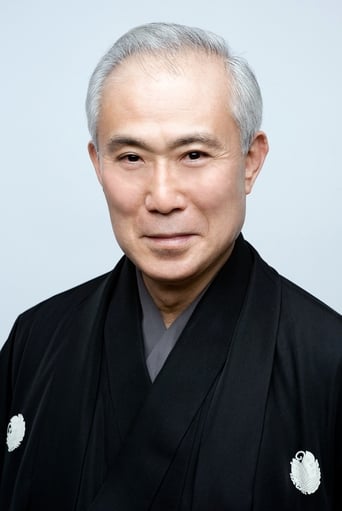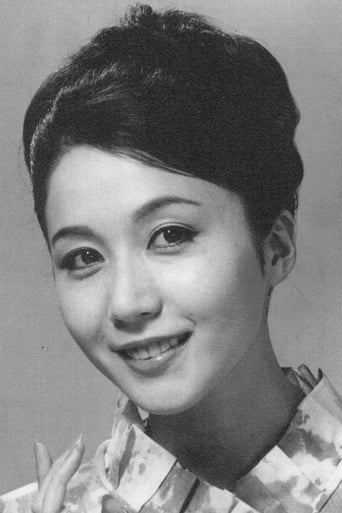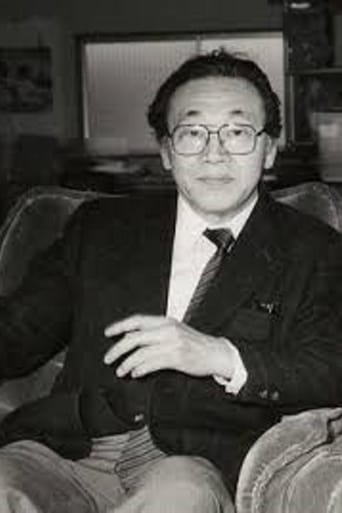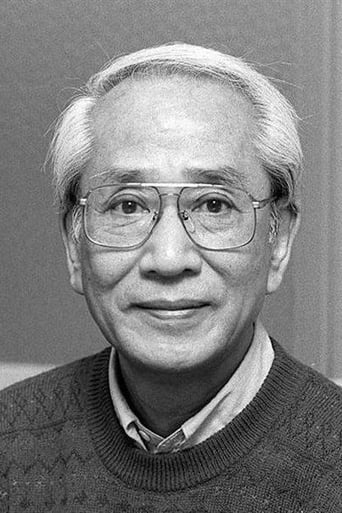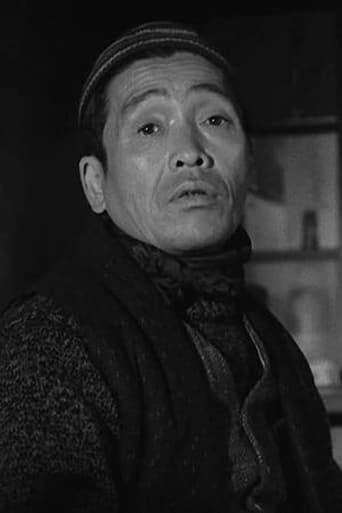Libramedi
Intense, gripping, stylish and poignant
ThedevilChoose
When a movie has you begging for it to end not even half way through it's pure crap. We've all seen this movie and this characters millions of times, nothing new in it. Don't waste your time.
Jenna Walter
The film may be flawed, but its message is not.
Justina
The film never slows down or bores, plunging from one harrowing sequence to the next.
mevmijaumau
With highly stylized, indisputably unique art-house films like Masahiro Shinoda's Double Suicide, it's always a challenge to describe these works because there's just so much to say. This movie is considered to be one of the most notable films from the Japanese New Wave, aka the "movement that never officially existed but let's just call it a movement" movement, which is nevertheless one of the most thematically and artistically fascinating movie periods.Double Suicide is based upon the 1721 play The Love Suicides at Amijima by Monzaemon Chikamatsu, which touches on one of Chikamatsu's apparently recurring themes, love and individuality getting royally owned by the system. This play is often performed in bunraku (puppet theatre) style, while Shinoda's film mixes avantgarde techniques with bunraku and kabuki theatre styles. The sets are strange and not at all realistic; huge white floors with doodles and letters/kanji characters written all over them, revolving background walls, characters getting lost in the indoor decor with giant traditional drawings all over the walls and floors, and so on. Sometimes, the footage goes into slow-motion or the camera just freezes on a single frame for a dramatic effect. Some half-second long establishing shots are repeated. The backdrops change their appearance as the film progresses. For example, the calligraphic texts on the walls of the protagonist's shop become amorphous ink blobs dripping down.Kichiemon Nakamura and Shima Iwashita (who plays both main female characters), as well as the other actors, do a great job in their extremely theatrical and melodramatic roles, fitting in with the rest of the kabuki charm this movie has going for it. Before the three-act storyline begins, we have the opening credits scene which shows the puppets for the play being prepared (before getting substituted by real- life actors), while we listen to a phone conversation between Masahiro Shinoda and Taeko Tomioka (a co-writer), where they discuss the script as well as location hunting for the penultimate scene.Another notable factor is the use of the kuroko (black-clad stagehands), a Japanese theatrical tradition. The kuroko intervene in nearly every scene, but they never come across as a gimmick. Sometimes they fit in so naturally that you forget they're even there until they move. They assist the actors in handling objects, they prepare the stage and the backgrounds, but never literally interfere with the storyline; after all, they're just spectators, such as ourselves the audience. One scene in particular I find to be amusing - after a character receives a letter, a kuroko takes it and brings it closer to the camera so the viewer can read it, while the two actors in the background freeze and stay still until the kuroko returns the letter to one of them. Now they can finally snap out and resume the dialogue.The final 10 minutes are pure genius. The much-awaited suicide scene (it's not even a spoiler because the title and the intro make it obvious) has gorgeous photography all around. Just the shot of the kuroko standing at the far end of the bridge while the lovers are positioned in the middle is one of the most astonishing and memorable film shots I've ever seen. It all culminates in the incredibly shot hanging scene (the kuroko, of course, are there to prepare the noose), accompanied by Toru Takemitsu's fantastic score (he also co-wrote the film), before settling down to the shot of two corpses laying on the ground which closes the movie suddenly, without any ending screen or anything (or is my version of the film defective?)Double Suicide is one of the best Japanese New Wave films I've seen and the proof that a creative filming style can single-handedly salvage a plot that in itself is not that interesting.
Claudio Carvalho
In 18th Century in Japan, the paper merchant Jihei (Kichiemon Nakamura) falls in love for the courtesan Koharu (Shima Iwashita), but he can not afford to redeem her from her master and owner of the brothel, since he spent all his money in the place with Koharu. Jihei's wife Osan tries to keep her husband with his two children and asks Koharu to leave him. The two lovers make a pact of double suicide to escape from the rigid rules of the Japanese society of 1720 and stay together after death."Shinjû: Ten no Amijima" is an extremely original movie, based on a Japanese puppeteers theater (called "Bunraku") popular play by Monzaemon Chikamatsu. The Shakespearian story of an impossible love is theatrically performed, inclusive with the presence of the "kuragos", the puppet masters that conduct the puppets in the "Bunraku". Although being much related to Japanese culture, this movie is a great experience for those like me that have interest in other cultures. My vote is eight.Title (Brazil): "Duplo Suicídio em Amijima" ("Double Suicide in Amikima")
Jason Forestein
I had never heard of Shinoda or Double Suicide prior to enrolling in a Japanese literature and film class in college. The memory of watching it, though, remains with me. As I did when I first saw Chinatown or Greed or 2001, I sat there like a codfish, mouth open and catching flies. I had never seen anything like it, and I have not seen anything like it since. The film is based on Chikamatsu's 18th-century bunraku play (a type of play that uses puppets and leaves the cloaked puppet masters in plain view of the audience) and offers a wonderful translation of that text and that style of theatre. That's correct, cloaked puppetmasters move about on screen along with the characters. This element and this element alone could have caused my love of this film to grow. It's a simple choice, really, but creates such depth to the story. In the traditional play, the puppetmasters were there because they had to be. In the film they become fate, guiding the actors through the world. It's a wonderful touch and an interesting concept. The photography of the film is incredible as well, though; the stark black and white melding beautifully to the basic, raw emotions of the characters and the harsh view of love put forth by the film. The set design is mindblowing as well, with its over-sized woodblock prints of that era. The film has a visceral impact on its audience, but it does so without overly manipulating one's emotions. If anything, the audience is kept at a distance from the characters and is therefore unable to feel anything sentimental for them. However, the film's bleakness is effective and affective, giving one the feeling, at the end, of having been punched in the guts. Granted, such a feeling is not for everyone, but I appreciate films that can affect me in such ways.
Howard Schumann
Similar to the fate of the star-crossed lovers in Romeo and Juliet, Double Suicide by Masahiro Shinoda is Shakespearean in its theme of lovers who are forbidden by society's rules to be together and can only find fulfillment in death. The film is based on a 1720 Kabuki (or Bunraku) puppet play, The Love Suicide at Amijima by Monzaemon Chikamatsu, who has been called the Japanese Shakespeare. As the film begins, black-clad puppeteers known as kurago are busy assembling puppets and setting the stage for the drama. Soon live actors replace the puppets but the puppeteers remain in the background, silent participants changing the sets, assembling the props, and "pulling the strings", representing perhaps the inexorable hand that guides our lives or as Shinoda has said the `thin line between truth and falsehood". The film is intensely emotional and has the feel of grand opera but the puppeteers make clear the artificiality of the drama and keep us distanced.
In the film, Jihei (Kichiemon Nakamura) is a paper merchant who is married with two young children. Though he loves his wife Osan, he has been secretly seeing a courtesan Koharu (Shima Iwashita who also plays Osan) for two and a half years. He has dissipated his fortune at the brothel and now cannot raise enough money to redeem Koharu from her enslavement to the brothel's owner (Kamatari Fujiwara). Though his family finds out about their romance and Osan tries to persuade Jehei to sever the relationship, it becomes apparent that the bond is unbreakable and we watch helplessly as the inevitable tragedy unfolds. Double Suicide has a haunting score by Toru Takemitsu and amazing black and white photography, shown in sharp detail and contrast in the new Criterion DVD, and is highly recommended for a unique viewing experience.
